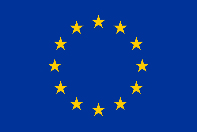Breadcrumbs navigation
Nuclear safety assessment tools are reaching their limits in demonstrating the safe long-term operation (LTO) of nuclear power plants. The new EU-funded project APAL (Advanced PTS Analysis for LTO) addresses these issues through the expertise of its international, multidisciplinary partners. With the final goal of responsibly extending the period of operation for nuclear power plants, the project strives to improve the reactor pressure vessel (RPV) integrity assessment methods for pressurised thermal shock (PTS). The 14 partners aim to advance long-term operation by identifying possible improvements in the power plants’ hardware, software and procedures that can have an impact on PTS. Over the next four years, the project will receive EUR 4 million funding from the EU Horizon 2020 Euratom I programme.The coordinator of the consortium is the Czech company ÚJV Řež.

Nuclear power plants constitute a reliable supply of emission-free energy, thus playing an important role in achieving the binding target to cut emissions in the EU by at least 40% below 1990 levels by 2030. Most of the about 180 nuclear power plants currently feeding electricity into European grids are, however, in the second half of their designed lifetime. In order to ensure the needed electricity supply for the next decades, the EU is targeting lifetime extensions of existing plants, generating a need for advanced methods to verify their safe operation. One of the most limiting safety assessments for long-term operation is the integrity analysis of the RPV for PTS regimes.
In the EU, currently used PTS analyses are reaching their limits in demonstrating the safety for power plants facing LTO. Therefore, the recently launched APAL project has set out to develop advanced deterministic as well as probabilistic PTS assessment methods and to quantify safety margins for LTO improvements. The consortium will address multidisciplinary and multi-physics challenges related to RPV safety assessment and PTS mitigation. All recommendations and conclusions gathered in the course of the project will be used to define best practices covering all aspects of advanced PTS analyses for LTO. The probabilistic approach to be applied in APAL offers the possibility to handle the uncertainties without acting overly conservative, as well as the capacity to supply quantitative data for the risk-based lifetime management approaches, which are also used by a wide range of other industrial fields.
“The guidance to be developed in APAL will be generally applicable to the entire EU operating fleet”, says Dr Vladislav Pištora, Chief Researcher at the Czech company ÚJV Řež (Nuclear Research Institute Řež), who coordinates the project. “In the long run, our expected results will also benefit other industries faced with harsh environments.”
Taking into account that many senior nuclear experts are approaching retirement, there is an increasing risk to lose valuable knowledge on deterministic and probabilistic safety analysis in the nuclear community. Education and training activities therefore play a decisive role in APAL: A dedicated training scheme comprising training visits, workshops and the creation of specific positions for young researchers will ensure knowledge transfer between young professionals and senior experts.
The APAL consortium consists of partners from almost all EU countries with nuclear power, as well as Ukraine and Switzerland. The additional involvement of international partners from the United States and Japan will create added value and consensus in the field of probabilistic assessment. The partners will kick off APAL project activities with an online project meeting on 26th and 27th October 2020.
Title: APAL – Advanced PTS Analysis for LTO
Start: 1 October 2020
Duration: 48 months
Total Budget: 3,999,090.00 €
Coordinator: ÚJV Řež, a. s.
Website: www.apal-project.eu
|
Czech Republic: |
ÚJV Řež, a. s. |
|
Finland: |
Lappeenrannan-Lahden Teknillinen Yliopisto LUT |
|
France: |
Institut de Radioprotection et de Sûreté Nucléaire |
|
Germany: |
EURICE – European Research and Project Office GmbH |
|
|
Framatome GmbH |
|
|
Gesellschaft für Anlagen und Reaktorsicherheit (GRS) gGmbH |
|
Hungary: |
Bay Zoltán Alkalmazott Kutatási Közhasznú Nonprofit Kft. |
|
Slovenia: |
Institut Jožef Stefan |
|
Switzerland: |
Paul Scherrer Institut |
|
Spain: |
Tecnatom S.A. |
|
Sweden: |
Kiwa Inspecta Technology AB |
|
Ukraine: |
IPP Centre LLC |
|
|
State Enterprise “State Scientific and Technical Center for Nuclear and Radiation Safety” |
|
USA: |
Oakridge Consulting International, Incorporated |
|
Japan: |
Japan Atomic Energy Agency |
Project Coordination:
ÚJV Řež, a. s.
Dr. Vladislav Pištora
+420 266 173 220
Project Management:
Eurice GmbH
Denisa-Lavinia Sammel
+49 6894 388 1348

|
APAL has received funding from the Euratom research and training programme 2014-2018 under grant agreement No 945253. |